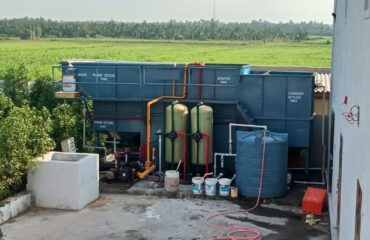Introduction
Shahdol, a city known for its natural beauty and cultural heritage, emphasizes sustainable development and environmental conservation. The Sewage Treatment Plant (STP) in Shahdol plays a crucial role in managing wastewater effectively to protect public health and the environment.
Importance of Sewage Treatment
Wastewater contains harmful pollutants and pathogens that can contaminate water bodies and pose risks to human health. The STP in Shahdol employs advanced treatment processes to remove impurities and ensure the safe disposal or reuse of treated water.
Key Components of an STP
- Preliminary Treatment: Removes large debris and solids through screening and grit chambers.
- Primary Treatment: Allows solids to settle and separates them from the liquid phase through sedimentation.
- Secondary Treatment: Utilizes biological processes like activated sludge or trickling filters to further break down organic matter.
- Tertiary Treatment: Incorporates advanced filtration (e.g., sand or membrane filtration) and disinfection (e.g., chlorination or UV treatment) for high-quality effluent.
Benefits of the STP in Shahdol
- Environmental Protection: Reduces pollution of rivers and groundwater, preserving aquatic ecosystems.
- Public Health: Minimizes the spread of waterborne diseases by treating sewage to acceptable standards.
- Resource Recovery: Recovers water for irrigation, industrial use, or groundwater recharge, promoting water conservation.
- Energy Generation: Utilizes biogas from anaerobic digestion of sludge for renewable energy production.
Technological Advancements
The STP in Shahdol leverages modern technologies such as SCADA systems for remote monitoring, automated control systems for process optimization, and sludge dewatering technologies for efficient sludge management.
Challenges and Solutions
- Capacity Expansion: Upgrading infrastructure and increasing treatment capacity to meet growing urbanization and industrial demands.
- Sustainable Operations: Implementing energy-efficient practices, reusing treated water, and promoting public awareness for sustainable water management.
- Compliance and Monitoring: Adhering to environmental regulations, conducting regular water quality monitoring, and ensuring effluent meets regulatory standards.
Conclusion
The Sewage Treatment Plant in Shahdol is a vital asset for sustainable development, ensuring the efficient management of wastewater while safeguarding public health and the environment. Through technological innovation and proactive measures, Shahdol aims to achieve comprehensive wastewater treatment and contribute to a cleaner, healthier city.





